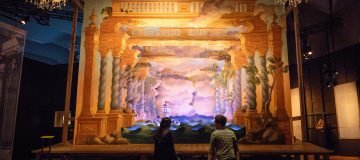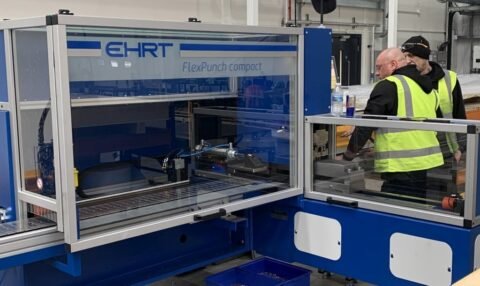Within hours of Donald Trump’s plane touching down in Riyadh on Tuesday, the art of the deal was in full swing. With golden swords, Arabian horses, and a $600 billion Saudi investment commitment, Trump’s return to the Kingdom looked less like diplomacy and more like a victory lap through his favourite marketplace.
The contrast with Joe Biden’s 2022 visit couldn’t be more stark. Where Biden endured that awkward fist bump after calling Saudi Arabia a “pariah,” Trump received the full royal treatment: warplanes escorting Air Force One, Crown Prince Mohammed bin Salman personally greeting him, and even a mobile McDonald’s outlet wheeled out for the media (a nice touch for a president famously fond of fast food).
The numbers announced on Tuesday are genuinely staggering. The $142 billion arms deal, dubbed the “largest defence sales agreement in history,” headlines a shopping list that includes Oracle’s $14 billion cloud computing investment, hundreds of thousands of Nvidia AI chips heading to Saudi startup Humain, and AMD’s $10 billion collaboration. Trump characteristically declared he wants to double the entire $600 billion commitment.
But this isn’t just about business. In a surprise announcement that might have caught even seasoned diplomats off-guard, Trump declared he was lifting US sanctions on Syria, giving the war-torn nation “a chance at greatness.” He’s scheduled to meet Syrian President Ahmed al-Sharaa on Wednesday — the first encounter between an American president and Syrian leader since Bill Clinton met Hafez al-Assad in 2000.
The author of “The Art of the Deal” has found his perfect negotiating partner in Crown Prince Mohammed bin Salman. Both leaders share an appetite for grand gestures, mega-projects, and the sort of transactional diplomacy that produces immediate, measurable results. Trump’s Riyadh speech praised the Crown Prince’s transformation of the Kingdom while carefully avoiding the sort of lectures on human rights that characterised previous administrations.
From an Arab perspective, Trump’s approach offers refreshing pragmatism. As he told the investment forum, “Far too many American presidents have been afflicted with the notion that it’s our job to look into the souls of foreign leaders.” For Gulf leaders weary of Western moralising, Trump’s business-first mentality feels like diplomatic relief.
But the personal element remains impossible to ignore. Trump’s empire spans the region – golf courses in Dubai, developments in Saudi Arabia, and a new luxury resort planned for Qatar. When pressed about potential conflicts of interest, White House spokeswoman Karoline Leavitt called such suggestions “frankly ridiculous.” The optics, however, speak volumes about a president who sees little distinction between personal business and national interest.
Trump also secured the release of the last American hostage held by Hamas, Edan Alexander, and offered Iran a stark choice: make a deal or face “massive maximum pressure.” It’s diplomacy by ultimatum, delivered with characteristic bluntness from the comfort of a friendly capital.
The four-day Gulf tour – Saudi Arabia, Qatar, and the UAE – reads like a perfectly choreographed deal-closing roadshow. Elon Musk joined the delegation (Starlink got Saudi approval), Oracle CEO Safra Catz praised Trump’s “decisive leadership,” and tech executives queued up to announce billion-dollar investments.
Gulf royals have mastered Trump diplomacy: present him with superlative announcements, treat him like visiting royalty, and watch as he delivers exactly what they want – advanced weapons, cutting-edge technology, and legitimacy on the global stage. And for Trump, the Gulf represents everything he admires about leadership: decisive action, visible wealth, and quick results.
His acceptance of a bling-filled 747 from Qatar as a potential new Air Force One perfectly captures the transactional nature of these relationships. It’s diplomacy where everyone gets something tangible, immediately.
Yet this approach carries risks. By prioritising commercial wins over comprehensive conflict resolution, Trump may be storing up regional instabilities for later. The Palestinian question, Iranian proxy activities, and the broader Abraham Accords framework all require sustained diplomatic engagement, not just investment forums and arms sales.
Still, Trump’s Gulf strategy reflects a simple truth. Some relationships work better when everyone acknowledges they’re fundamentally transactional. The Crown Prince gets his weapons and technology, Trump gets his investment figures and photo opportunities. After decades of complicated Middle East diplomacy that promised much and delivered little, perhaps there’s something refreshingly honest about a president who cuts straight to the deal.
The art of the Gulf deal, it turns out, is knowing exactly what everyone wants and delivering it with maximum fanfare. Trump has certainly mastered that particular diplomatic skill.





